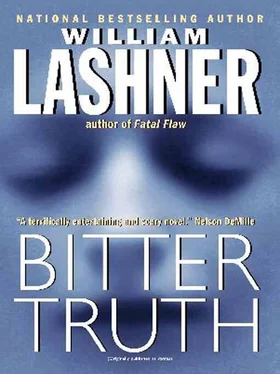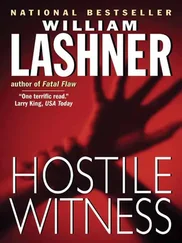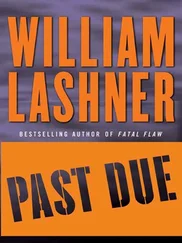“Kapustin here was a big help,” said Rabbinowitz, “which surprised me, really, because generally he is absolutely useless.”
“Don’t be such the cham, ” said Morris. “You, you’re less than useless. The last stock he convinced me to buy, Victor, it didn’t split, it crumbled.”
“Tell me something, Morris,” said Rabbinowitz. “If ignorance is bliss, why aren’t you ecstatic?”
“Are you guys finished with your vaudeville,” I said, “because the day is short, the task is great, the workmen are lazy…”
Rabbinowitz looked at Morris, who looked back and shrugged.
“He doesn’t find us entertaining,” said Morris. “I’m surprised because I find us very entertaining.”
“Sit down, Victor,” said Rabbinowitz, putting on a pair of half-glasses. “Sit down and we’ll show you what we found.”
I sat at the conference table and Rabbinowitz placed two of the books in front of me. One was a heavy old ledger, the other was smaller, and when he opened the books an ancient scent erupted, something mildewed and rotted and rich with must. The pages in each book were yellowed and cracking in the corners, some of the numbers were obliterated by time, but the handwriting in those entries that remained legible was careful and precise.
“This is the disbursement journal and the general ledger for 1896,” said Rabbinowitz. “Before Reddman started doing for himself the books.” He pointed out to me the meaning of the various entries in the disbursement journal and then went to a long list of figures for January. “These are the amounts paid to specific suppliers each month. We used the amounts in this book as baseline figures. Maybe you’ll notice, Victor, that the monthly amounts paid to each supplier, they stay about the same, adjusted seasonally. More produce was bought in the late summer and fall when the harvests came in so more was paid out then, but everything went up roughly proportionally with each of the farmers.”
“That makes sense,” I said.
“The monthly totals in the disbursement journal were posted at the end of the month to the general ledger. If you also notice, at the back of the general ledger, there is a final trial balance for the year. Assets of course equal liabilities and everything seems in order. All stock at the time, as listed in the general ledger’s stock register, was owned by E. J. Poole. Stockholder equity, in less sophisticated times a rough measure of the value of the company, was surprisingly high for such a business. All in all, I would have to say that the E. J. Poole Preserve Company was well and tightly run in 1896.”
Rabbinowitz took two more books from the pile, the disbursement journal and general ledger for 1897, and placed them in front of me. The same hand had made the entries in these books, though a little less precisely. Rabbinowitz again went through the monthly entries in the disbursement journal, comparing the amounts paid each supplier with that paid the year before. Everything seemed in order, the monthly totals were duly posted to the general ledger, and the trial balance at year’s end again showed a healthy company, all the shares of which were still owned by Elisha Poole.
He then placed the books for 1898 in front of me. As of March of that year the handwriting of the entries changed. “This is when, as best as Morris could tell, Reddman started keeping the books.”
“Any indication of why?” I asked.
“None,” said Morris, “but you might have noticed that Poole’s handwriting, it had started to deteriorate. We think maybe that might indicate a reason.”
“Any extra monies started being paid directly to Reddman?” I asked.
“No,” said Rabbinowitz. “That, of course, was the first thing we checked. Reddman, he received only modest raises all along until he finally bought the company outright. He started as an apprentice tinsmith and, even though he took on more responsibility, his pay remained rather miserly. But I want to show you something here.” He pointed to an entry in the disbursement journal for payments made to a farmer named Anderson. “Notice here that shortly after Reddman started doing the books, the disbursements to Anderson jumped up slightly in proportion to the amounts paid to the other farmers, just a few hundred dollars, but still an increase.”
“Maybe Anderson started expanding his output.”
“That of course is possible,” said Rabbinowitz, who immediately turned to the back of the general ledger. “But notice, in the trial balance sheet for that year, stockholder equity didn’t rise even though sales had actually improved.”
“Interesting,” I said.
Rabbinowitz brought out the disbursement journal for 1899 and dropped it on top of the other books, dust rising when it fell. I sneezed and then sneezed again. Morris handed me a tissue while Rabbinowitz showed me the disbursement entries, month by month, for 1899. Everything seemed stable until we got to June. Rabbinowitz tried to turn the page to find July but I grabbed hold of his wrist.
“What’s that?” I asked
“I told you he’d notice it,” said Morris. “He’s no yutz .”
“An unexplained jump in the amount paid to this Anderson,” said Rabbinowitz with a flourish, as if we had discovered a great scientific secret. “Fifteen hundred dollars more than you would expect to see for that month.”
“Any supplier decrease its payable in a similar amount?” I asked.
“Good question,” said Rabbinowitz. “And the answer, it is no.” He took me through the book page by page, showing that the increase was maintained for every month through the whole of the year. “Almost ten thousand dollars by year’s end. Now I want to show you two things in the general ledger.” He brought out another volume and paged to the trial balance at the end of the book. “First, shareholder equity dropped by about ten thousand dollars at year’s end, approximately twenty percent.”
“Almost the exact amount of the unexplained bonus paid to Anderson.”
“Exactly right,” said Rabbinowitz. “And look at this in the stock register. Eighteen ninety-nine was the first time Reddman started buying shares of stock from Poole. He bought five shares, or five percent of the company, for six thousand dollars.”
“Where did a tin cutter with a pittance of a salary get six thousand dollars?” I asked, even though by then I figured I knew the answer.
“What we guess, Victor,” said Morris, “is that this Reddman, he volunteered to take control of the books so that he could slip his friend Anderson a little bonus and get for himself a kickback. For some reason he figured he could get away with even more and then he hit on the idea of using the money to buy the company outright, so he raised the payoff and started buying stock. The beauty of it for him was that while he was stealing from the company, the company was losing profits and its value was decreasing, making the price he was to pay less and less. I bet he was able to convince Poole that he was doing him such a favor because of how terrible the company, it was doing.”
“So, in effect,” I said, “Reddman was stealing from Poole and using the money to buy Poole’s company. Very clever.”
“Clever, yes,” said Rabbinowitz. “For a thief.”
The other volumes showed the same thing, inexplicably large payments to Anderson, weakening shareholder equity, increasingly large purchases of stock by Reddman that would have been impossible on the salary he was listed as receiving in the books. By 1904, Reddman owned forty-five percent of the stock.
“How did he get the rest?” I asked.
“He apparently took out a loan, mortgaging his stock holdings and the stock he was going to purchase,” said Morris. “He used the money to buy the remaining shares held by Poole in 1905.”
Читать дальше












